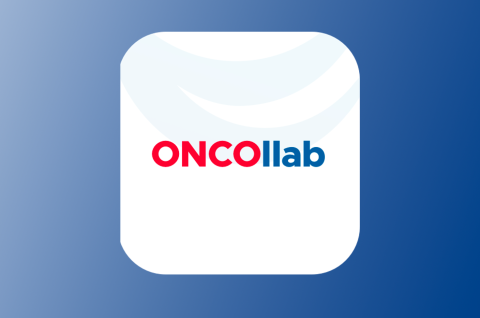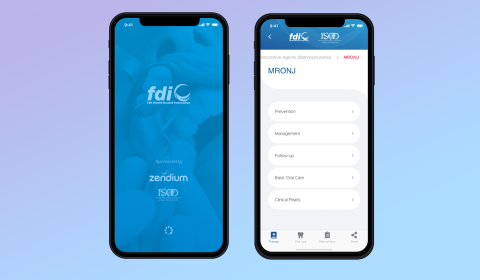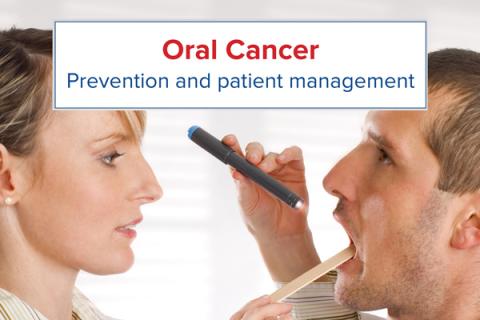Oral Health and Cancer: Collaborative Care
During cancer treatment, there is a risk of developing oral complications: It is estimated that more than 30-35% of patients undergoing cancer treatment will suffer from conditions such as dry mouth, oral bleeding and oral mucositis.[1] These side effects can impact the quality of life of the patient as well as overall treatment outcomes. Effective management of oral health before, during and after treatment is therefore crucial to improve patient well-being.[2]
More than 30-35% of patients undergoing cancer treatment will suffer from oral complications.
Every health professional involved in the continuum of cancer care must be aware of these specific side effects on oral health and should be able to take the necessary measures to avoid them. Strengthening collaboration and knowledge between oral health professionals and other health professionals in the cancer care team is essential.

Developing interprofessional education initiatives to improve the oral health of people with cancer
The Oral Health and Cancer: Collaborative Care and Patient Education Project, launched in 2020, aims to increase collaborative oral healthcare throughout the entire continuum of cancer care and improve knowledge about oral health and related complications among every member of the care team. This project will develop an interprofessional education tool, including oral health education resources tailored specifically for patients with cancer.

Download the App
ONCOllab app is a learning and practice-support tool for all health professionals involved in cancer care, to recognize and manage oral complications during cancer therapy.
Goal 1
Enhance collaboration between oral health professionals and health professionals involved in cancer care.
Goal 2
Improve the integration of oral healthcare into cancer care.
Goal 3
Create a common language among healthcare professionals to recognize and manage oral complications that may arise during cancer therapy.
1] U.S. Department of Health and Human Services. Oral Health in America: A Report of the Surgeon General, Executive Summary (2000) Rockville. U.S. Department of Health and Human Services, National Institute of Dental and Craniofacial Research, National Institutes of Health, MD
[2] Brennan, M.T., Spijkervet, F.K.L. & Elting, L.S. Systematic reviews and guidelines for oral complications of cancer therapies: current challenges and future opportunities. Support Care Cancer 18, 977–978 (2010). https://doi.org/10.1007/s00520-010-0855-4
The Oral Health and Cancer: Collaborative Care and Patient Education Project is supported by Zendium.
The Oral Health and Cancer project is supported by:






